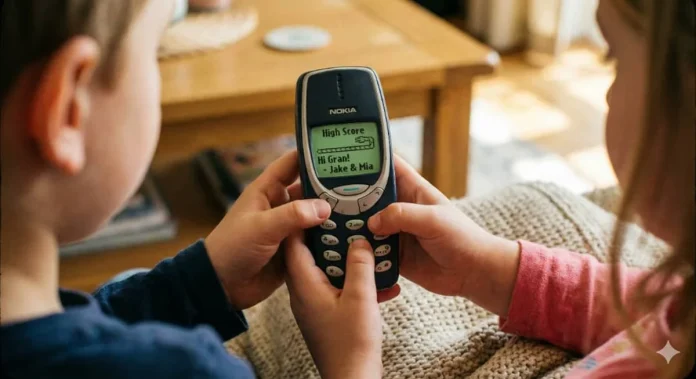Child advocacy group says delaying smartphones helps, but real protection requires adult training, tighter safeguards and national standards on digital safety
PETALING JAYA: A child safety advocate said the growing interest in kid-friendly dumb phones reflects parents’ rising anxiety over online harms – but warn that such devices are not a silver bullet.
Dumb phones are simplified mobile devices that offer only essential features such as calls and text messages and do not support social media, app downloads or have high-stimulus digital content.
CRIB Foundation co-chairperson Srividhya Ganapathy said while basic phones can help younger children stay connected without the risks of social media, families should not view them as a complete solution.
“A dumb phone can help families who need basic communication for younger children, but it is not a solution to online harm.”
She said CRIB supports delaying smartphone access until at least age 12, as younger children lack the maturity to navigate the digital world safely.
“A basic phone can support safety and logistics without exposing children to social media or grooming,” she said, but noted that many children already have access to their parents’ smartphones, tablets and laptops from a very young age, and they are often used as “surrogate babysitters”.
She said with schools moving towards digital textbooks and online learning, children will still access the internet through laptops and tablets even if they use a basic phone.
“The real challenge is the design of the online ecosystem and how well-prepared children are to navigate it.”
Based on CRIB’s work with The Talisman Project, she said early smartphone use exposes children to an adult digital world long before they understand consent, coercion or digital permanence.
Common harms reported by families include:
- sextortion, where children are coerced into sending images and then blackmailed on encrypted platforms;
- grooming, often beginning on games or open chat platforms before shifting into hidden channels. Exposure to sexualised or violent content, including AI-generated abusive materials;
- peer pressure and cyberbullying on messaging groups and social apps; and
- sleep disruption, anxiety and concentration issues.
“The core issue isn’t the device – it’s unfiltered access without understanding,” she said.
She added that while basic phones remove addictive features, they cannot solve the underlying problem as children will still go online through school laptops and shared devices at home. Research, she said, shows the most effective solutions are strong adult digital literacy, consistent boundaries and continuous education on how online platforms and predators operate.
“Dumb phones may reduce some exposure, but they cannot substitute for education, training and safety-by-design.”
Srividhya said parents and schools are being “asked to manage a global digital crisis with very little support”.
“Parents need practical tools to set boundaries, while schools need clear smartphone policies and training on online harms. Basic phones can support boundaries during school hours but they can’t protect children from the wider digital environment they’re already immersed in,” she said, adding that education itself is now digital.
CRIB is urging policymakers to adopt a more comprehensive approach to child digital safety.
Srividhya outlined several key measures the organisation hopes to see:
- safety-by-design regulations for tech platforms, including default privacy settings for minors and age-appropriate design;
- national guidance recommending later smartphone access with realistic age thresholds;
- mandatory, continuous digital literacy education in schools to keep pace with evolving online harms, including AI, encrypted platforms and grooming tactics;
- training for adults – parents, teachers and caregivers – so they can understand risks and respond effectively;
- youth-led programmes, such as The Talisman Project, to empower teens to educate their peers; and
- an independent child commissioner to coordinate agencies, regulate platforms and drive national strategy.
Srividhya said families must recognise that the digital world is expanding so much faster than support systems can keep up.
“We cannot rely on devices alone to protect children.
“The durable solution is continuous, updated education paired with technology that embeds safety, privacy and inclusion by design.
“Children need adults who understand the risks – and systems that evolve as fast as the threats do. Our responsibility is clear – delay exposure where we can, design safer environments, and equip children with the skills to navigate the world they already live in.”








